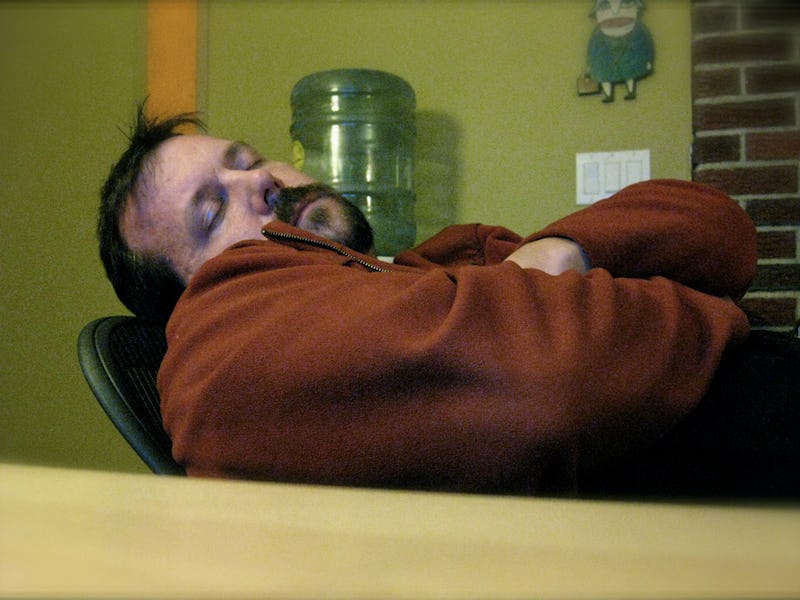Medicating Laziness One Espresso (and Some Ritalin or Modafinil) at a Time
Italian researcher Samuele Marcora says it's time to ditch the PSAs urging people to exercise and start writing prescriptions.

Sloth is a sin, but — uniquely — it’s a curable one.
Chronic laziness may have an evolutionary basis: Consider our homo erectus forebears’ need to covet calories (or just look at a cat). But we live in an age of plenty and the reflex to avoid work has become more dangerous than the risk of running out of fuel. To that end, Samuele Marcora, the Director of Research at the University of Kent’s School of Sport and Exercise Sciences, thinks it’s time to consider a pharmaceutical, psychoactive cure. What he proposes isn’t exactly doping a la Lance Armstrong, but it isn’t exactly not either.
Marcora’s goal, he explained to Inverse, isn’t peak performance, but the elimination of some of the mental hurdles to exertion. “Laziness is complicated,” he admits, adding that the “sloth gene” we may have once been selected for interacts on every level with personal motivation, a far more fickle instigator.
Marcora thinks there are two ways to deal with this issue. Large organizations, including governments, can try — as many public health campaign do — to increase motivation by inundating the public with PSAs on the health benefits of exercise. Or doctors can treat patients for laziness, giving them drugs that make exercise and work feel easier. Essentially, Marcora wants to speed people up by lowering hurdles.
This, he says, is where “doping” comes in. Reducing the perception of effort is entirely possible — with the right substances. Though we don’t think of caffeine as a drug, it’s actually a powerful psychoactive that affects neurophysiological processes to make exercise seem easier. “We have this sensation of effort that is relatable to the intensity of exercise and also the duration of exercise,” he says. “ Caffeine is very good at reducing that perception of effort.”
He’s quick to point this out because “doping” alarms people and “coffee” doesn’t. He just wants to be more systematic about self-medication, a tradition as old as man. And his approach is straightforward enough. Reaping caffeine’s effects on perceived effort requires slightly higher doses — for the average American, it’s the equivalent of about three espressos — and timing the dose for about 30-60 minutes before exercising.
“It sounds horrible, but it’s the same amount that goes into a large latte at Starbucks,” he says. “It’s not so uncommon.”
Then the drugs come in: The impact of taking the ADHD drug ritalin and the narcolepsy drug modafinil on perceived effort are profound and the side effects are minimal. “The benefits of becoming fitter and remaining physically active are very likely to outweigh, by a considerable amount, the side effect of using the drug,” says Marcora. So there’s your medical justification right there.
What’s crucial to keep in mind is that none of these psychoactives are going to turn couch potatoes into athletes overnight. But if a person signs up for the gym membership of their own volition and then starts hacking their perception of effort with drugs, Marcora says they’ll be a hell of a lot more likely to continue training.
Does the fact that the target is psychological rather than physical make doping laziness less ethically murky than steroid use? For Marcora, what it comes down to is context. “The main issue, I think, is a cultural one,” he says. “For people coming from sport, taking drugs to increase performance, to make training easier — they see it as cheating. Which I think is correct *in the context of sport.” Outside of sports, playing fields are intended to be or perceived to be equal, so Marcora shrugs off the moral horror of an unfair advantage, chalking that up to life itself.
“From a rational point of view,” he says, “it’s a no brainer.”